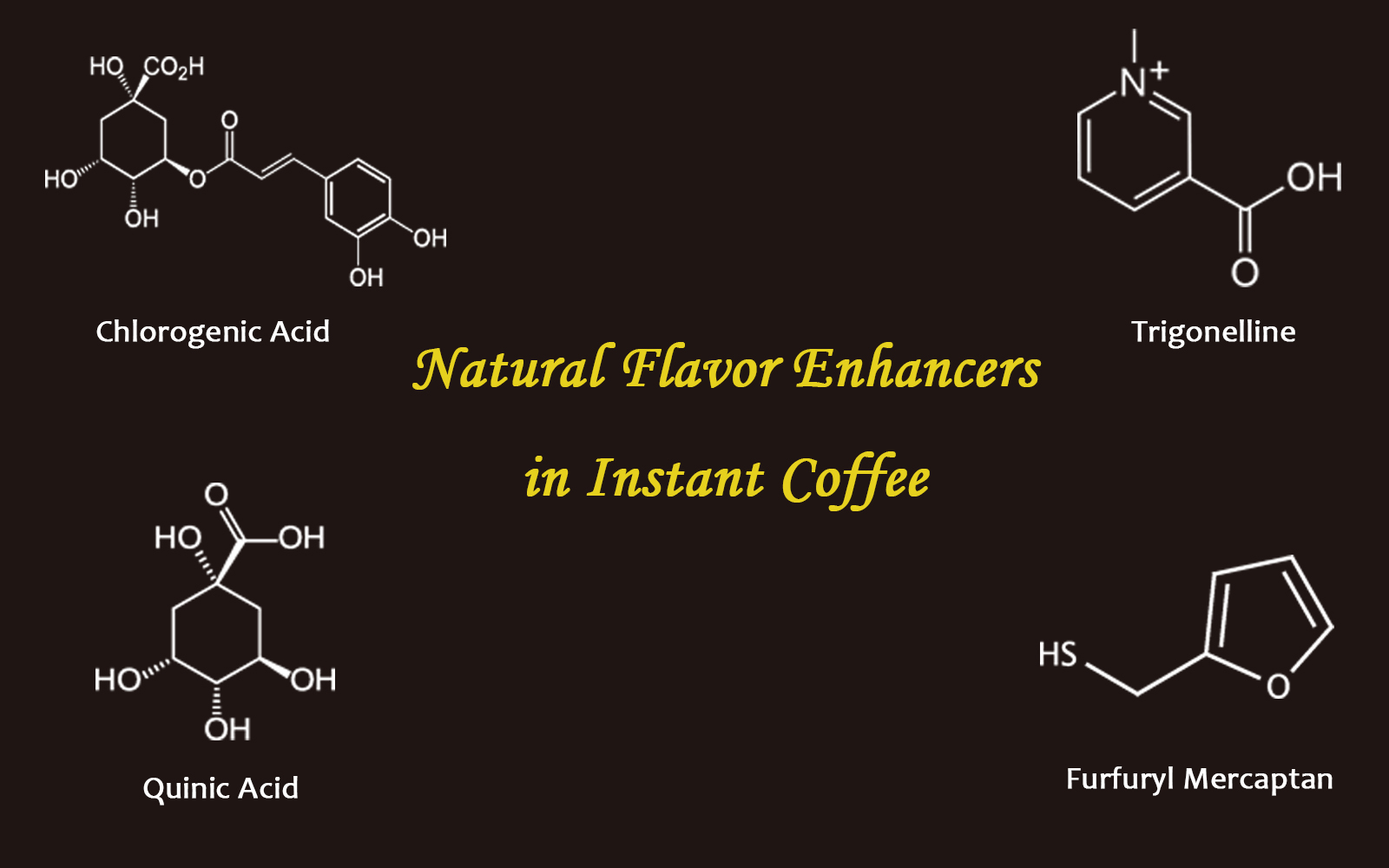
Chlorogenic Acids are the most abundant of many naturally occurring acids in roasted coffee beans. This acid demonstrates potent antioxidant effects which neutralize chemicals that can potentially damage your body tissue.
Molecular Formula: C(16)H(18)O(9)
Trigonelline is a bitter alkaloid in coffee which serves to produce important aroma compounds.
Molecular Formula C(7)H(7)NO(2)
Quinic Acid along with citric and malic represent a significant portion of coffee’s total acid content. During roasting Quinic Acid progressively increases as the levels of Chlorogenic Acid decreases. This acid has also been associated with an increase in perceived acidity as coffee infusions are left standing at elevated temperatures.
Molecular Formula: C(7)H(12)O(6)
Furfuryl Mercaptan is an organic compound that is a clear, colorless liquid when pure, but becomes yellow upon prolonged standing. It possesses a strong odor of roasted coffee and a bitter taste. It is a key component of the aroma of roasted coffee.
Molecular Formula: C(5)H(6)OS